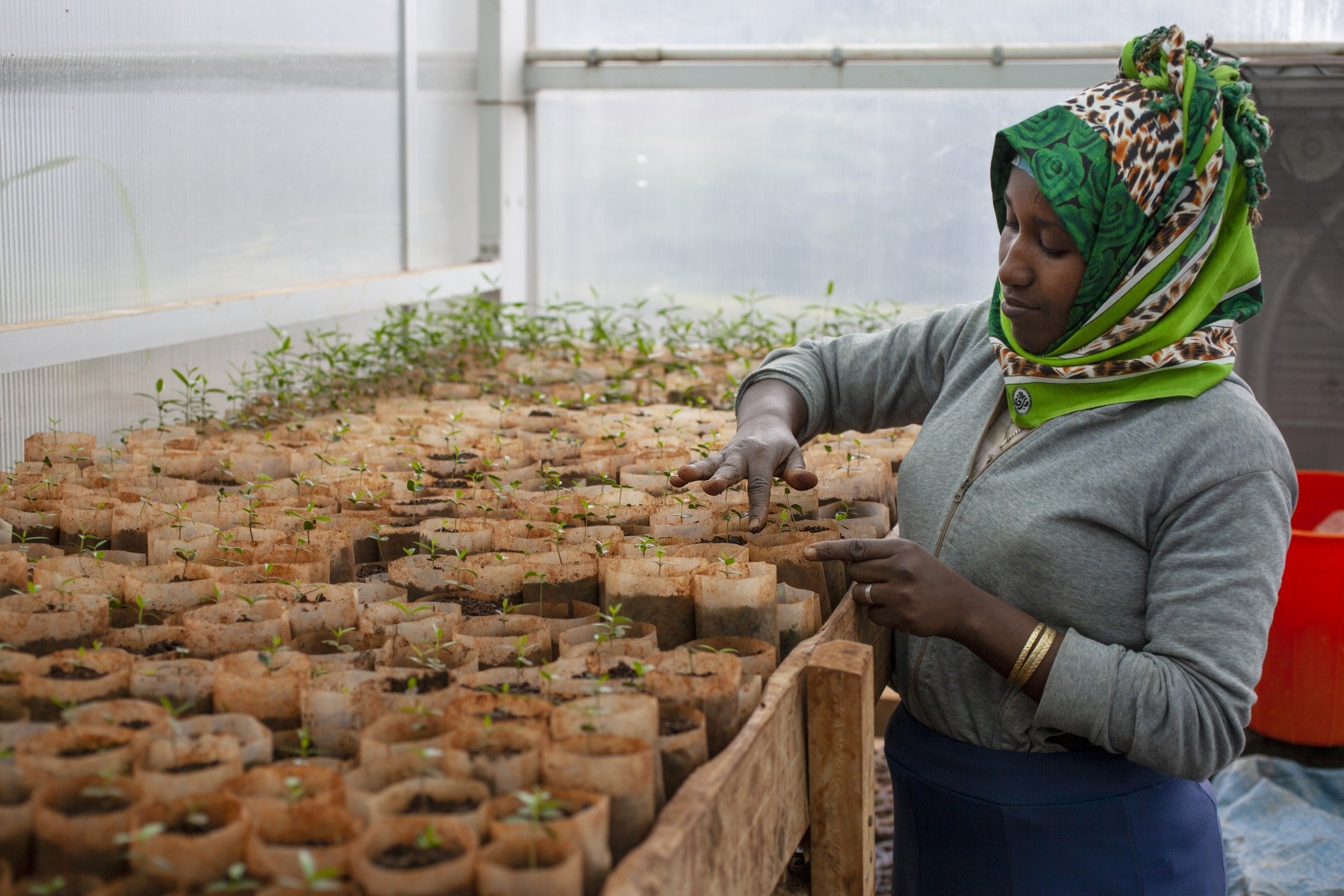Authored by FOLU’s International Policy and Engagement Team
Africa holds 60% of the world’s uncultivated arable land, the fastest-growing population on the planet, and a food economy worth billions — yet still imports much of what it eats. This is not just a challenge. It is one of the greatest investment opportunities of our time.
Fifty years ago, Africa was cast as a recipient of aid. Today, it is one of the world’s most dynamic investment frontiers — and nowhere is the potential greater than in transforming food systems. At the UN Food Systems Summit +4 in late July, one message cut through: Africa’s transformation will be built not on aid flows, but on smart, large-scale investment that delivers for farmers, businesses, economies and the climate alike.
The Food and Land Use Coalition (FOLU) and its partners have long championed this shift. Our 2030 Strategy is explicit: move from ambition to country-led implementation; mobilize business and investors to unlock billions in responsible finance; and build the integrated policies needed to turn commitments into lasting change. That means acting now — directing capital into value chains and landscapes where every dollar can generate outsized economic, environmental, and social returns.
The agrifood investment gap — and the opportunity
Globally, just $28.5 billion of climate finance flows into the agrifood sector each year — a fraction of the $205 billion to $1.1 trillion needed. Yet the global food system already moves $8.6 trillion annually. Redirecting just 2% — around $205 billion — could halve food system emissions from land-use change.
This is not about charity. It is about channelling capital — smartly and strategically — into markets where farmers, companies, and communities share in the value created. The barriers are well-known: perceived high risk, thin pipelines of investable projects, policy bottlenecks. Governments, working with civil society, business, and development finance, can remove them.
Turning food systems ambition into food systems investment
Across Africa, countries are already showing how ambition becomes investment:
- Sierra Leone – Localizing the onion value chain through blended finance has reduced imports, created jobs, and laid the foundation to become an exporter. The country has already mobilized $1 billion in investment under the Feed Salone programme, proving how coordinated action can unlock unprecedented capital flows. Its agroforestry plan projects that $41 million could deliver a 35–40% IRR from cocoa, cashew, and coffee, generating up to $310 million within five years.
- Ethiopia – Replacing imported palm oil with sustainably produced sunflower and soybean oil is backed by a costed $1 billion plan that could generate $4.2 billion in value by 2028 and $15 billion by 2030. As FOLU Ethiopia Country Director Sofia Ahmed told leaders in Addis: “Willing partnerships are in place, a plan is in place, and we are ready to move forward. What we need now is to unlock finance and make it happen.”
- Rwanda – A $592 million Climate-Smart Agriculture Investment Plan is linking 170,000 farmers and 375 companies to finance, covering over 83,000 hectares of agricultural land.
The formula is consistent:
- Identify commercially viable value chains with strong market demand.
- Build robust, costed investment plans grounded in market data, with concrete financial commitments.
- Convene all value-chain actors — policymakers, business leaders, leaders of financial institutions, farmers, civil society actors — around a shared roadmap to remove bottlenecks and accelerate delivery.
Creating the conditions for capital to flow into food systems
Unlocking finance at scale requires deep government commitment, strong inter-ministerial coordination, and alignment of financial flows with national priorities. It also means tackling structural barriers like limited credit access and market fragmentation.
The Food Systems Transformation Accelerator — launched at UNFSS+4 by the Global Alliance for Improved Nutrition (GAIN), AGRA, FAO, and the UN Food System Coordination Hub and many more— will help countries turn food systems pathways into investable actions. It will work directly with governments, businesses, and Development Finance Institutions (DFIs) to mobilize private capital for national priorities, while civil society ensures these investments are inclusive, accountable, and deliver public value.
Platforms such as the Alliance of Champions for Food Systems Transformation — its secretariat co-hosted by CGIAR and FOLU — connect high-ambition countries with finance, technical expertise, and peer learning to accelerate delivery.
Moving from rhetoric to results
We know what works. Now is the time to scale it. All stakeholders have a role to play, from governments to communities.
- Policymakers: Commit at Cabinet level, align ministries around shared priorities, and dismantle structural barriers to investment.
- Investors: Step into markets now with capital that meets bankable opportunities, not just pledges.
- Civil society: Surface investable deals from local actors and ensure every transaction delivers public value.
From Ethiopia’s agro-industrial parks to Sierra Leone’s Feed Salone initiative, Africa is proving what’s possible when smart policy meets strategic capital. The challenge — and the opportunity — is to replicate and scale these successes, fast.
As UN Deputy Secretary-General Amina Mohammed reminded us in Addis Ababa: “The stakes are too high for half measures. Food systems transformation cannot remain a slogan. It must become a signal of change in how we invest and how we collaborate.”
Africa is open for business
Let’s replace ad-hoc projects with investment-grade roadmaps; replace one-off announcements with country platforms that deliver; and replace extractive finance with accountable capital that pays back farmers, communities, and ecosystems — by design.
The coming months are ripe for such investments to take root. The upcoming Africa Food Systems Forum (AFSF) in Dakar, Senegal, is one of those moments, catalyzing collaborations and accelerating the momentum created at UNFSS.
Read more in ACF’s UNFSS+4 reflections from the ACF and in our Executive Director Morgan Gillespy’s article on the 2030 Strategy— and join us in shaping a future where food and land use systems enable people, planet, and nature to prosper.










